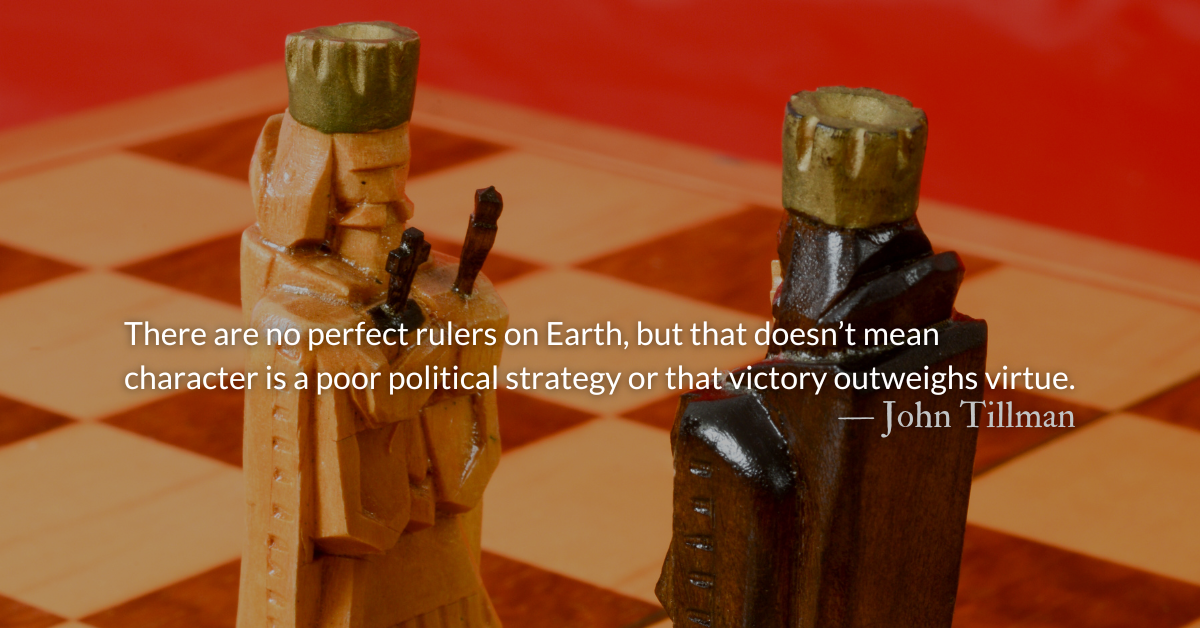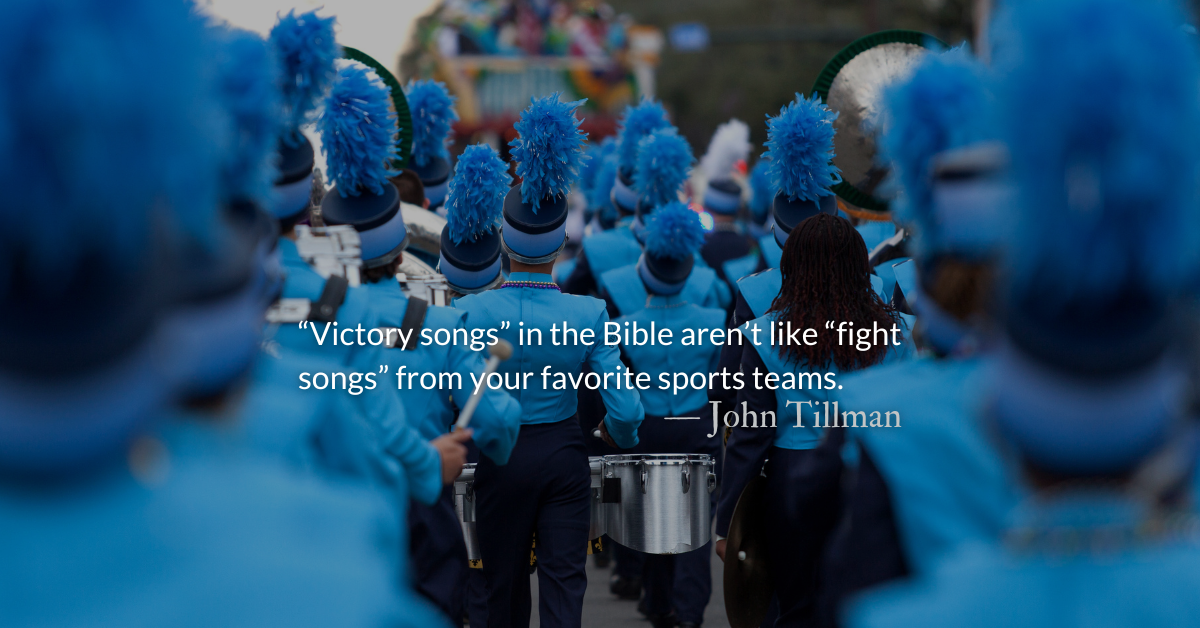Readers’ Choice is here: Over two-thirds of our devotionals get emailed responses from readers like you. Hearing that what we have written is meaningful to you is meaningful to us. That’s why we love sharing some of your comments and messages. Thank you, readers. We do what we do to serve you. There’s still time to tell us about your favorite, most meaningful posts of the year. If you shared it with someone, or it helped you, let us know via email, direct message, by or filling out the linked form.
From John: We begin Readers’ Choice this year with the post that got more positive responses than any other this year. The gospel must be protected from those who would corrupt it and manipulate it for other, worldly means. We continue to pray that this will come to pass so that many will be saved. I repost here, at the beginning of the post, the clarification I posted at the end of the devotional on its original publication date:
“Because this post condemns a phrase used in politics, I want to clarify how and when The Park Forum has and will speak about political issues. At The Park Forum, we do not and will not have a partisan affiliation. We do not and will not endorse or condemn any candidate or party. We do not and will not write according to the headlines of the day, but according to the text of the day. However, when the text brings up truths that are relevant to political issues of the day, we will speak to those issues according to the text and the whole counsel of scripture without regard or deference to any party or politician’s opinion. We do not seek to be “swayed by others, but…teach the way of God in accordance with the truth.” (Mark 12.14) We have readers from both major political parties in the United States and we need faithful Christians to be in both parties. Suppose a Christian is in the Republican or Democratic party. In that case, they are not there to toe the line as a good Republican or a good Democrat any more than Moses was to be a good Egyptian, Esther a good Persian, Daniel a good Babylonian, or Shiphrah and Puah obedient subjects of Pharaoh. Whatever your partisan affiliation, rather than toe a party line, we pray you will stand on scripture and be a check on your own party in the name of Jesus Christ. The Park Forum does not exist to change politics but to inform, educate, and inspire a vibrant faith that disciples the reader, strengthens their community of faith, and blesses the world with the gospel of Christ.”
Links for today’s readings:
Oct 1 Read: 1 Kings 3 Listen: (4:29) Read: Psalms 20-21Listen: (2:37)
Readers’ Choice posts are selected by our readers:
Barbara, TN — Thank you, John!
Paula, SC — Thank you John! We belong to Christ and are always to live out HIS message.
Terri, CO — Thank you so much for this article! Thank you for speaking the truth boldly.
Lark — Thank you.
This post was originally published on February 18, 2025, based on readings from Exodus 1.8-10, 18-22.
Scripture Focus: Exodus 1.8-10, 18-22
8 Then a new king, to whom Joseph meant nothing, came to power in Egypt. 9 “Look,” he said to his people, “the Israelites have become far too numerous for us. 10 Come, we must deal shrewdly with them or they will become even more numerous and, if war breaks out, will join our enemies, fight against us and leave the country.”
18 Then the king of Egypt summoned the midwives and asked them, “Why have you done this? Why have you let the boys live?” 19 The midwives answered Pharaoh, “Hebrew women are not like Egyptian women; they are vigorous and give birth before the midwives arrive.” 20 So God was kind to the midwives and the people increased and became even more numerous. 21 And because the midwives feared God, he gave them families of their own. 22 Then Pharaoh gave this order to all his people: “Every Hebrew boy that is born you must throw into the Nile, but let every girl live.”
Reflection: Poisoning the Heart of the Gospel — Readers’ Choice
By John Tillman
“There’s too many detestable foreigners endangering our country.”
Sound familiar? It should. It’s the ideology of the wicked Pharaoh at the beginning of Exodus. Similar ideologies have gripped many governments throughout history.
The spirit of Pharaoh echoes in Mein Kampf, by Adolf Hitler. He described the threat of non-Germans “poisoning the blood” of the country. He claimed their bad genes weakened the human race and accused them of plotting to control the government and oppress true Germans. Those deemed to be “poisoning the blood” of Nazi Germany were first vilified, then isolated in ghettos, then forcibly relocated to prison labor camps, then executed.
Pharaoh had followed a similar path. The Israelites were isolated, crushed with oppressive, brutal forced labor policies and violence. Then, Pharaoh instituted policies to murder their children.
The spirit of Pharaoh also shows up in China’s persecution of the Uyghur people and Russia’s treatment of Muslim Tatars and the Ukrainian Orthodox Church of Kyiv in Crimea.
“Poisoning the blood” has also been heard with increasing frequency in the last five years of American politics. It is unusual how broadly this phrase has been accepted and normalized. In a poll last year, one-third of Americans (including 60 percent of White Evangelical Protestants) agree with the sentiment that immigrants are “poisoning the blood” of the United States. (Axios article)
The approval of the phrase “poisoning the blood of our country” among Christians is theologically wrong, morally reprehensible, and politically dangerous. This phrase poisons the heart of the gospel. To believe this phrase, we must call Paul (Acts 17.26; Galatians 3.28), Peter (Acts 2.14-17, 10.34-36; 1 Peter 2.9-10), and Jesus (John 17.21; Matthew 28.19-20) liars.
At The Park Forum, we do not and will not endorse or condemn any political candidate or party, but we pray that faithful Christians in any political party will openly condemn this phrase, its implications, and any policies based in its racist logic. We pray that faithful Christians who have endorsed this phrase will repent after understanding its source, its theological errors, and the logical outcomes of believing it.
We pray that, like Shiphrah and Puah, faithful Christians will resist unjust rulers and policies in any way that God enables. We pray that the hearts of many that have gone cold, will be renewed. We pray that the nations that come to our country, especially those who are fleeing persecution from Pharaoh-like governments in their countries, would hear and experience freedom through the gospel of Christ and the salvation of their souls.
The Lord’s Prayer:
We will take a break from The Divine Hours prayers for the month of October and instead pray Dallas Willard’s paraphrase of The Lord’s Prayer:
Dear Father, always near us,
may your name be treasured and loved,
may your rule be completed in us-
may your will be done here on earth in
just the way it is done in heaven.
Give us today the things we need today,
and forgive us our sins and impositions on you
as we are forgiving all who in any way offend us.
Please don’t put us through trials,
but deliver us from everything bad.
Because you are the one in charge,
and you have all the power, and the glory too is all yours-forever-
which is just the way we want it!
Readers’ Choice is here!
#ReadersChoice is time for you to share favorite Park Forum posts from the year.
What post lifted your spirit?
https://forms.gle/aSD7X5psHqjSMtBFA
Read more: Divide et Impera
There are both earthly and spiritual emperors who wish to divide and rule over us through the use of division and conspiracy.





